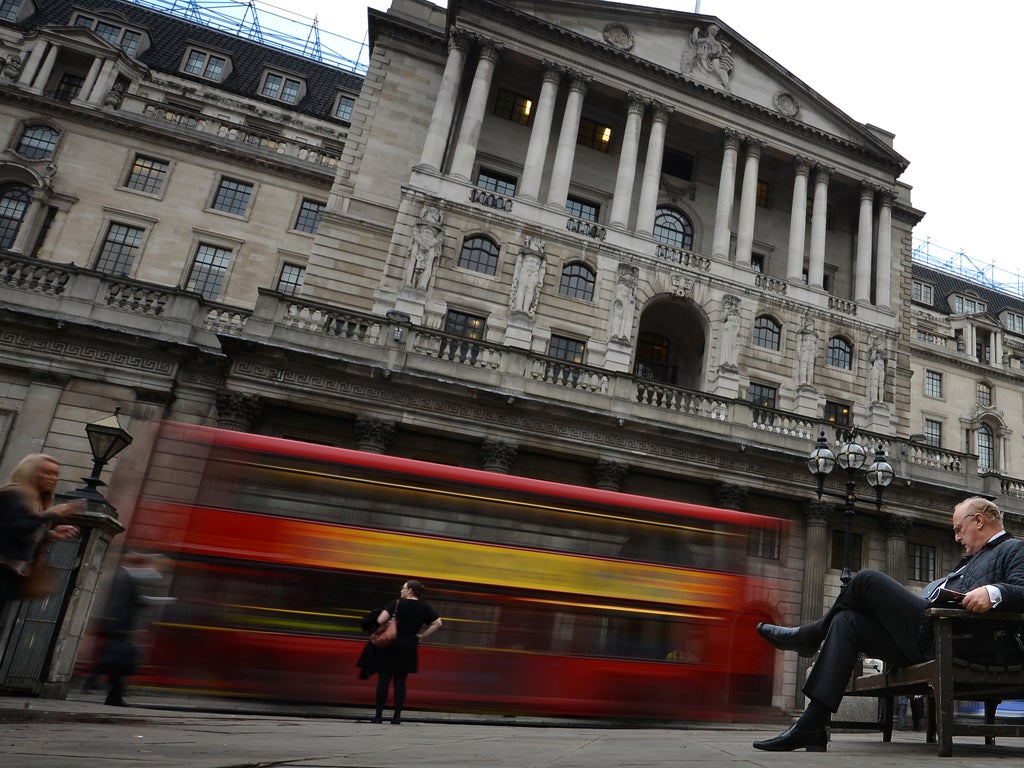Bank of England rate setter Gertjan Vlieghe hits back at Theresa May's complaint over low interest rates
The external Monetary Policy Committee member said such gripes reflect only a partial view of the financial position of savers

Your support helps us to tell the story
From reproductive rights to climate change to Big Tech, The Independent is on the ground when the story is developing. Whether it's investigating the financials of Elon Musk's pro-Trump PAC or producing our latest documentary, 'The A Word', which shines a light on the American women fighting for reproductive rights, we know how important it is to parse out the facts from the messaging.
At such a critical moment in US history, we need reporters on the ground. Your donation allows us to keep sending journalists to speak to both sides of the story.
The Independent is trusted by Americans across the entire political spectrum. And unlike many other quality news outlets, we choose not to lock Americans out of our reporting and analysis with paywalls. We believe quality journalism should be available to everyone, paid for by those who can afford it.
Your support makes all the difference.An external member of the Bank of England's Monetary Policy Committee has become the latest central banker to push back against the widespread complaint that low interest rates have unduly penalised savers in recent years.
In her October Conservative Party conference speech the Prime Minister Theresa May said it was important to recognise the “bad side effects” of monetary stimulus from the Bank including the fact that “people with savings have found themselves poorer”.
But in a speech at Sheffield University, Gertjan Vlieghe dismissed the argument, saying that such complaints reflected only a partial view of the financial position of savers.
He pointed out that of the £10 trillion of wealth held by UK residents only one seventh is held in the form of bank deposits.
Half is in housing and the rest is in pension rights and stocks and shares, which are boosted by low interest rates and money printing by the Bank.
“This is likely to benefit the vast majority of savers by far more than the loss of interest income on the £1.5 trillion of deposits,” he said.
He also pointed out that official wealth surveys shows that it is very rare for a household to have considerable wealth in bank deposits alone, implying that even if people have seen the interest on their deposits fall their overall wealth will probably still have risen due to monetary stimulus.
Mr Vlieghe also stressed that many savers will have benefited from the stronger economy resulting from the monetary stimulus from the Bank in the wake of the global financial crisis, which has helped push the unemployment rate to below 5 per cent.
“Jobs and wage growth have benefited savers as well as borrowers,” he said.
“Once the effect of an improved economy on savers is taken into account, it seems to me that most savers benefit from monetary stimulus.”
In her conference speech Ms May led some to believe that she was preparing to curb the independence of the Bank and its Governor Mark Carney when she promised that “a change has got to come and we are going to deliver it”.
But she soon backtracked and Mr Carney has since committed to remain as Governor until June 2019.
Ms May's remarks on the Bank hurting savers have also recently been contradicted by Mr Carney's two deputy governors, Ben Broadbent and Sir Jon Cunliffe.
There was one policy specifically designed to help savers in the Autumn Statement.
Chancellor Philip Hammond unveiled a new state-backed saving bond, guaranteeing 2.2 per cent interest to savers on sums up to £3,000 per person, which is above the rate offered by most bank accounts.
The estimated cost of the policy to the taxpayer will be £265m over the four years to 2020-21.
Also in his speech, Mr Vlieghe rejected the common argument that low interest rates are harming the economy indirectly by increasing the accounting value of defined benefit pension fund deficits, saying there was no evidence yet these deficits were responsible for firms cutting investment.
Mr Vlieghe, a former employee of the hedge fund Brevan Howard, said that major trends in the global economy including demographics, income inequality and the lower costs of capital investment goods, were primarily responsible for low long-term interest rates in Western economies, and that central banks were merely responding to these forces in pursuit of their inflation and GDP growth goals.
He said that blaming low central bank policy interest rates for economic weakness and low inflation was akin to blaming umbrellas for causing rain.
On the wider economic outlook, Mr Vlieghe said he saw the current 0.25 per cent level of interest rates as “appropriate for the UK economy” in the wake of the Brexit vote but stressed the uncertainty around the Bank's forecast.
The economy grew by 0.5 per cent in the third quarter of the year, defying many predictions of a return to recession.
But sterling has slumped more than 15 per cent against the dollar since 23 June, which Mr Vlieghe said implied that financial markets expect economic underperformance relative to previous expectations.
“It might turn out that financial markets are too pessimistic and the economy continues to grow in a 'business as usual' way, in which case I would expect the exchange rate to move higher over time. Or it might mean that households are too optimistic, in which case I would expect households to reduce spending growth over time, possibly by more than the income-related slowing that is currently the MPC’s central projection,” he said.
Join our commenting forum
Join thought-provoking conversations, follow other Independent readers and see their replies
Comments